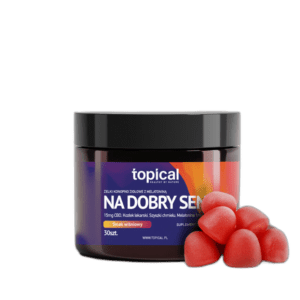Lion's Mane has shown anti-inflammatory, neuroprotective and antidepressant potential, and may enhance the nervous system's adaptive capacity to cope with difficult external factors (both at the physical and psychological levels). More and more scientific research is being conducted on the medicinal properties of coneflower, including its possible use in Alzheimer's and Parkinson's diseases. It can also be used to support cognitive function in people after strokes and those suffering from so-called mental fog.
Lion's Mane mycelium in traditional medicine
Hericium erinaceus (Lion's Mane, coneflower, yamabushitake) grows on old or dead deciduous trees and is used as food and medicine in some parts of Asia.
In Chinese it is called hóu tóu gū ("monkey's head mushroom"), and in Japanese yamabushitake ("upper monk's mushroom"). In the Chinese and Japanese medical systems, it was traditionally used to strengthen the spleen, nourish the intestines and as an anti-cancer drug.
Lion's Mane mycelium, according to a traditional account, is nourishing to the five internal organs (liver, lungs, spleen, heart and kidneys) and promotes good digestion, overall vitality and strength. It is also recommended for stomach and duodenal ulcers and chronic gastritis.
The mushroom is also known for its effects on the central nervous system and is used for insomnia, flaccidity (weakness) and hypodynamia, which are characteristic symptoms of Qi deficiency in traditional Chinese medicine (TCM).
Adaptogens from Lion's Mane mushrooms - scientific research
Modern medicine has been slow to recognize the enormous potential of mushrooms. Over the past few decades, science has begun to look for other potential uses for mushrooms beyond food - their nutritional and cholesterol-lowering properties are well known.
Scientists and doctors now have greater access to mycelial extracts, which are being used clinically for their anticancer, cardiovascular, anti-inflammatory and immunomodulatory effects. Functional studies and chemical analyses also confirm their potential as analgesic, antimicrobial, antioxidant and neuroprotective agents.
Lion's Mane mushroom for brain and nervous system health
Lion's Mane is just such a case - both its mycelium and fruiting bodies show therapeutic potential for brain and nerve health.
According to the results research conducted on animals modeling global ischemic stroke, Hericium erinaceus mycelium and the compounds isolated from it (the diterpenoid derivative, erinacin A) reduced the ischemic area by 22% at a dose of 50 mg/kg and by 44% at a dose of 300 mg/kg.
This effect was thought to be partly related to the ability of substances derived from coneflower to reduce levels of cytokines (pro-inflammatory toxins).
In another research Hericerins and erinacins (substances found in Lion's Mane) isolated from the fungus have been shown to exhibit neuroprotective properties - protecting nerve cells from degradation in a mouse model of Alzheimer's disease, thereby slowing the progression of the disease, delaying its onset or preventing it altogether.
W laboratory tests In vitro, it has been observed that certain carbohydrates (polysaccharides) isolated from Lion's Mane delay the process of nerve cell destruction by as much as 20-50% - so they also have a protective effect on neurons.
The same researchers tested the ability of substances contained in sea urchin to stimulate the growth of adrenal cells and nerve cell endings in rats. The study showed the mushroom's potential in this regard.
W behavioral test On wild-type mice, oral supplementation with H. erinaceus resulted in a statistically significant improvement in short-term spatial memory and visual memory.
In a double-blind, placebo-controlled clinical trial conducted on Japanese male and female patients between the ages of 50 and 80 who were diagnosed with mild cognitive impairment, oral intake of Lion's Mane tablets (at a dose of 250 mg three times a day for 16 weeks) was associated with significant improvements in the Hasegawa Dementia Scale (HDS-R) compared to the control group. Unfortunately, the effects did not persist long-term after the end of therapy.
Antidepressant potential of Lion's Mane
Currently there is several hypotheses regarding factors contributing to the onset of depression:
The neurotrophic hypothesis of depression refers to the adaptation of the nervous system and the inability of the nervous system to adequately respond or adapt in response to aversive stimuli or stress, leading to depression.
The monoamine hypothesis of depression suggests that the main signs and symptoms of depression are related to a deficiency in the transmission of neurotransmitters and modulators (monoamines), including norepinephrine, serotonin and/or dopamine.
The inflammatory hypothesis states that depressive disorders are associated with an increase in the expression of various pro-inflammatory substances, both in the central and peripheral nervous systems.
Preclinical and clinical studies showed that H. erinaceus significantly alleviates depressive disorders by acting in several ways: affecting the expression of neurotransmitters and neuromodulators, influencing the adaptive capacity of the nervous system, and acting as an anti-inflammatory. It points to the potential role of H. erinaceus as a complementary and alternative therapy in the treatment of depression.
However, current research on the antidepressant effects of H. erinaceus is still at a relatively early stage, and the specific mechanisms underlying the antidepressant effect require further study.
Summary
Research analysis performed by Polish researchers indicates that research on H. erinaceus and its neuroprotective properties has shown promising results and is an excellent starting point for further research to gain a deeper understanding of this species and prepare potential drugs/dietary supplements.
According to the authors, mushrooms show great potential as polypharmaceuticals due to their rich and complex chemistry and diverse forms of bioactivity. They contain many chemical compounds such as polysaccharides, triterpenes, alkaloids, flavonoids and other constituents that show potential therapeutic effects.
The potential antidepressant effect of the fungus, in view of the prevalence of depression and mood disorders, makes coneflower all the more interesting for scientific research.
As Polish researchers point out, standardization of dietary supplements based on medicinal mushrooms is still in the early stages of development. Uniform standards and protocols for the quality and composition of mushroom supplements are lacking.
Such standards would contribute to the development of more advanced and personalized therapies based on medicinal mushrooms and enable consumers/clients to benefit from high-quality products with health benefits.
In our online store you will find an extract containing the full spectrum of components of the Lion's Mane mushroom in the form of convenient drops: Ollywell Lions Mane 30ml - Sophora coneflower extract in drops
Sources:
Chong PS et al. Therapeutic Potential of Hericium erinaceus For Depressive Disorder, Int. J. Mol. Sci. 2020: https://www.mdpi.com/1422-0067/21/1/163?ref=bewusstschlafen.de
Spelman K et al. Neurological Activity of Lion's Mane (Hericium erinaceus), Journal Compilation 2017: https://scholar.googleusercontent.com/scholar?q=cache:oUXIOvUJ0NsJ:scholar.google.com/+Lion%E2%80%99s+Mane,+Hericium+erinaceus&hl=pl&as_sdt=0,5&as_vis=1
Tovato A et al. Redox modulation of cellular stress response and lipoxin A4 expression by Hericium Erinaceus in rat brain: relevance to Alzheimer's disease pathogenesis, Immun Ageing. 2016: https://www.ncbi.nlm.nih.gov/pmc/articles/PMC4938991/
Zhang J et al. The neuroprotective properties of Hericium erinaceus in glutamate-damaged differentiated PC12 cells and an Alzheimer's disease mouse model. Int J Mol Sci. 2016: https://pubmed.ncbi.nlm.nih.gov/27809277/
Kuo HC et al. Hericium erinaceus mycelium and its isolated erinacine A protection from MPTP-induced neurotoxicity through the ER stress, triggering an apoptosis cascade, J Transl Med, 2016: https://pubmed.ncbi.nlm.nih.gov/26988860/
Nakatsugawa M et al. Hericium erinaceum (yamabushitake) extract-induced acute respiratory distress syndrome monitored by serum surfactant proteins, Intern Med 2003: https://pubmed.ncbi.nlm.nih.gov/14714963/
Szućko-Kociuba I et al. Neurotrophic and Neuroprotective Effects of Hericium erinaceus, Int. J. Mol. Sci. 2023: https://www.mdpi.com/1422-0067/24/21/15960








